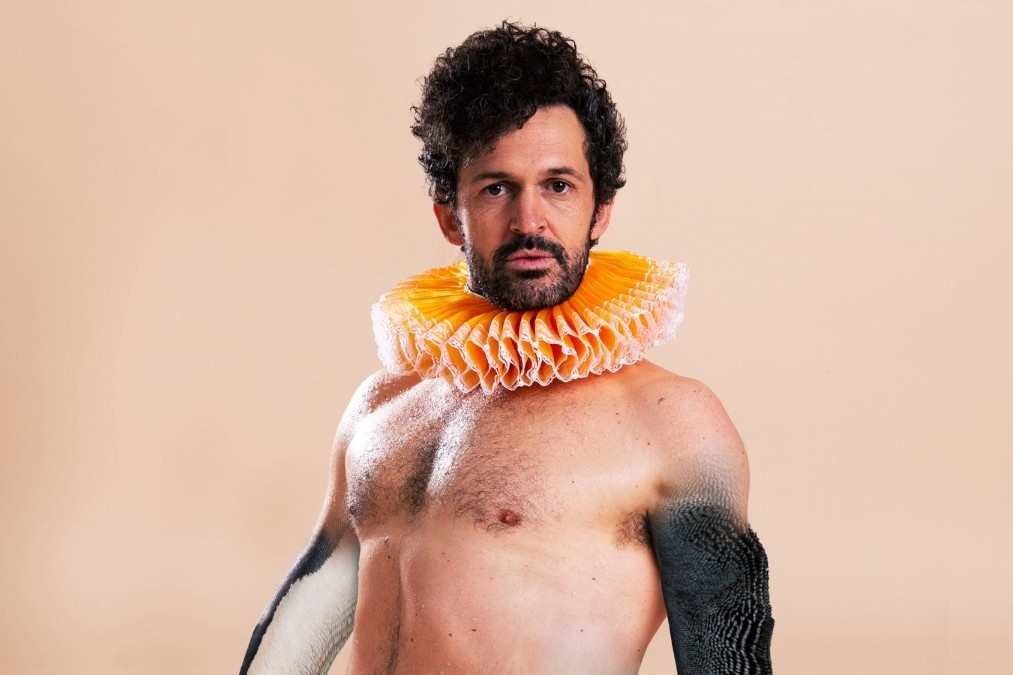Nudity has become a marketing tool for many late-night Fringe shows, with posters and flyers promising “adults only.” ‘Classic Penguins’ leans into this trend with a poster that parodies the iconic Penguin Books logo, shows Starr half-naked, ruff around his neck, and replaces his bottom half with that part of a Penguin. Yet no poster could truly prepare audiences for this hour of nudity, literature, clowning, and relentless audience interaction.
The show begins with Starr seated in an armchair, back to the audience, wearing a tailcoat and flippers. A bookshelf brims with Penguin titles. One by one, he projects the covers onto a screen and re-enacts them in the most absurd ways imaginable. Classics like To Kill a Mockingbird, The Adventures of Sherlock Holmes, Hamlet, The Time Machine, Around the World in 80 Days, The Waves, Frankenstein and even The Communist Manifesto are gleefully performed. Some are interpreted literally through their titles, while others draw on pop culture, such as the bonnet cap from Hulu’s adaptation of The Handmaid’s Tale or a chase scene lifted from Wuthering Heights.
The genius of the piece lies not in the idea itself but in Starr’s skill at working the crowd. Beginning almost fully nude, he sets a tone of openness and risk, though nothing can quite prepare the room for everything that follows. Audience members are pulled into dancing, a Dracula duet, spontaneous coin redistribution, and soon enough, Starr is body-surfing naked across the Underbelly. What could easily descend into shock humour is instead held together by his precise sense of timing, charm, and instinct for when to push and when to pull back.
Much of the joy comes from watching Starr himself. He is writer, performer, clown, singer, dancer, and ringmaster all in one. He sustains an hour of physical comedy with impressive athleticism, even including a Chinese “political” song in his playlist. Crucially, his interaction with the audience is grounded in trust. He makes it clear that all participation is voluntary: before attempting his body-surf, for example, he offers those uncomfortable with contact the option to step aside or bow their heads. He never punishes hesitation, instead pivoting so the energy never dips.
The show’s tightness is astonishing. With so many uncontrollable variables in live interaction, Starr somehow manages to cover every book on the shelf and land the show exactly on time. That, ultimately, is the magic of live theatre: the fragile community created in the moment, where a performer can place his body and his trust in the hands of strangers and find joy, security, and connection in return.
‘Classic Penguins‘ has finished its Fringe run


Comments